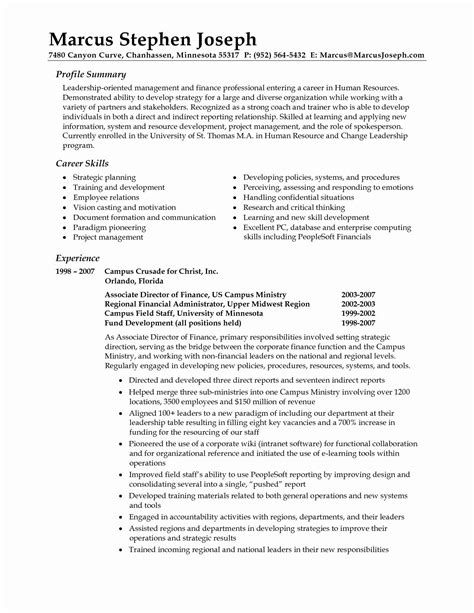Examples And Tips For Writing A Resume Summary

Writing a resume summary is a crucial part of the job application process. It is the first thing a potential employer will read about you, so it is important to make a good first impression. A resume summary is a brief statement that highlights your skills, experience, and achievements, and it should be tailored to the specific job you are applying for. In this post, we will provide you with examples and tips for writing a resume summary that will help you stand out from the crowd.
1. Keep it concise
Your resume summary should be no more than two to three sentences long. It should be a brief overview of your skills, experience, and achievements. Avoid using long paragraphs or bullet points, as this can make your summary difficult to read.
2. Tailor it to the job
Your resume summary should be tailored to the job you are applying for. Read the job description carefully and identify the key skills and experience the employer is looking for. Then, highlight your relevant skills and experience in your summary.
3. Use keywords
Many employers use applicant tracking systems (ATS) to screen resumes. These systems scan resumes for keywords and phrases that match the job description. To increase your chances of getting through the screening process, use keywords from the job description in your summary.
4. Highlight your achievements
Your resume summary should highlight your most significant achievements. This could be a project you completed, a sales target you exceeded, or a problem you solved. Use specific examples to demonstrate your achievements.
5. Show your personality
Your resume summary should give an insight into your personality. Use descriptive words to describe yourself and your work style. This will help you stand out from other candidates.
6. Avoid using personal pronouns
When writing your resume summary, avoid using personal pronouns such as “I” or “me.” Instead, use action verbs to describe your skills and experience.
7. Use numbers and statistics
Using numbers and statistics in your resume summary can help you stand out. For example, if you increased sales by a certain percentage, include this in your summary.
8. Keep it professional
Your resume summary should be professional and formal in tone. Avoid using slang or informal language.
9. Get a second opinion
Before submitting your resume, ask someone else to read your summary. This could be a friend, family member, or professional contact. Getting a second opinion can help you identify any errors or areas for improvement.
10. Edit and proofread
Finally, make sure you edit and proofread your resume summary carefully. Check for spelling and grammatical errors, and make sure your summary is easy to read and understand.
Conclusion
A well-written resume summary can help you stand out from other candidates and increase your chances of getting an interview. Keep your summary concise, tailor it to the job, and highlight your achievements. Use keywords, action verbs, and numbers to make your summary more impactful. Get a second opinion and edit and proofread your summary carefully. By following these tips, you can create a resume summary that will impress potential employers.
FAQs
Q: How long should a resume summary be?
A: A resume summary should be no more than two to three sentences long.
Q: Should I tailor my resume summary to the job?
A: Yes, you should tailor your resume summary to the job you are applying for. Identify the key skills and experience the employer is looking for and highlight your relevant skills and experience in your summary.
Q: Should I use personal pronouns in my resume summary?
A: No, you should avoid using personal pronouns such as “I” or “me” in your resume summary. Instead, use action verbs to describe your skills and experience.
Q: How can I make my resume summary stand out?
A: To make your resume summary stand out, use specific examples to demonstrate your achievements, use keywords from the job description, and show your personality.
Q: Should I get a second opinion on my resume summary?
A: Yes, getting a second opinion on your resume summary can help you identify any errors or areas for improvement.
